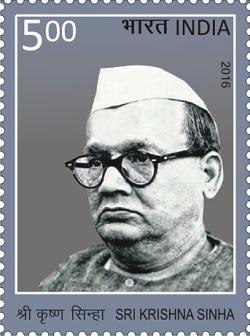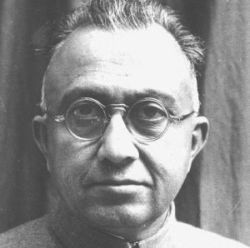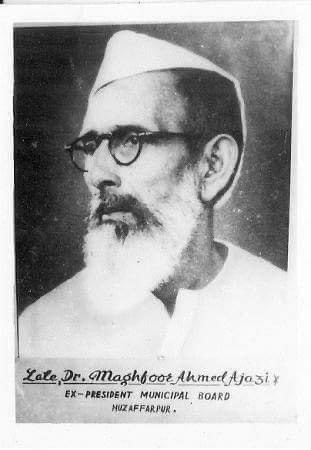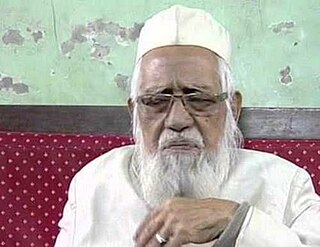Related Research Articles

Ram Vilas Paswan was an Indian politician from Bihar and the Cabinet Minister of Consumer Affairs, Food and Public Distribution in the first and second Modi ministries. Paswan was also the president of the Lok Janshakti Party, nine-times Lok Sabha member and two-time Rajya Sabha MP. He started his political career as member of Samyukta Socialist Party and was elected to the Bihar Legislative Assembly in 1969. Later, Paswan joined Lok Dal upon its formation in 1974, and became its general secretary. He opposed the emergency, and was arrested during this period. He first entered the Lok Sabha in 1977, as a Janata Party member from Hajipur constituency, and was elected again in 1980, 1989, 1991, 1996, 1998, 1999, 2004 and 2014.

Muzaffarpur is a city located in Muzaffarpur district in the Tirhut region of the Indian state of Bihar. It serves as the headquarters of the Tirhut division, the Muzaffarpur district and the Muzaffarpur Railway District. It is the fourth most populous city in Bihar.
Varmā, Verma, Varman, or Burman are surnames found in India and South-East Asia. The surnames Varmā, Verma, Varman, and Burman are indeed found in India and Southeast Asia. These surnames are commonly used by people of different castes and ethnic groups across the region. The surname Verma is used in North India by some of the groups among a cluster of castes called Kayasthas. However, in the same region, it can also be found among castes like Lodhi Rajputs, Kurmis. and Koeris.

Tirhut Division or Tirhut Commissionary is an administrative-geographical unit of Bihar in India. Muzaffarpur is the headquarters of the Division. The Division comprises six districts -- Muzaffarpur, West Champaran, East Champaran, Vaishali, Sitamarhi and Sheohar.

Shri Krishna Singh (Sinha) (21 October 1887 – 31 January 1961), also known as Shri Babu, was the first chief minister of the Indian state of Bihar (1946–61). Except for the period of World War II, Sinha was the chief minister of Bihar from the time of the first Congress Ministry in 1937 until his death in 1961. Along with the Desh Ratna Rajendra Prasad and Bihar Vibhuti Anugrah Narayan Sinha (A.N. Sinha), Sinha is regarded among the 'Architects of Modern Bihar'. He also led the Dalit entry into the Baidyanath Dham temple (Vaidyanath Temple, Deoghar), which reflected his commitment towards the upliftment and social empowerment of the Dalits. He was the first chief minister in the country to abolish the zamindari system. He underwent different terms of imprisonment for a total of about eight years in British India. Sinha's mass meetings brought hordes of people to hear him. He was known as Bihar Kesari for his lionlike roars when he rose to address the masses. His close friend and eminent Gandhian Bihar Vibhuti A.N. Sinha in his essay Mere Shri Babu wrote that, "Since 1921, the History of Bihar has been the history of the life of Shri Babu".
Shahabad district or Arrah district, headquartered at Arrah was a Bhojpuri speaking district in western Bihar, India, making the western border of Bihar with Uttar Pradesh. In 1972, the district was split into two districts: Bhojpur and Rohtas. Kaimur District was carved out from Rohtas in 1991 and Buxar District from Bhojpur in 1992. Historically, the geographic area was the eastern part of the Mahajanapada Kingdom of Kashi, with the Son River separating it from Magadh.
Abdul Ghafoor was an Indian freedom fighter and politician who served as the 13th Chief Minister of Bihar from 2 July 1973 to 11 April 1975; and served as cabinet minister in Rajiv Gandhi's government. He participated actively in freedom struggles and served jail terms.

Anugrah Narayan Sinha, known as Bihar Vibhuti, was an Indian nationalist statesman, participant in Champaran Satyagraha, Gandhian & one of the architects of modern Bihar, who was the first Deputy Chief Minister and the Finance Minister of the Indian state of Bihar (1946–1957). He was also a Member of the Constituent Assembly of India, which was elected to write the Constitution of India and served in its first Parliament as an independent nation. He also held a range of portfolios including Labour, Local Self Government, Public Works, Supply & Price Control, Health and Agriculture. A.N. Sinha, affectionately called Anugrah Babu, was a very close associate of Mahatma Gandhi during the freedom struggle movement and worked with Bihar Kesari Sri Krishna Sinha to lead the Gandhian movement in Bihar. One of the leading nationalists in the Indian independence movement from Bihar after Dr Rajendra Prasad, he was elected as the Congress Party deputy leader in the state assembly to assume office as first Deputy Chief Minister cum Finance Minister of independent Bihar, and re-elected when the Congress Party won Bihar's first general election with a massive mandate in 1952.
Manikya Lal Verma was a member of Constituent Assembly of India in 1949. He was prime minister of Rajasthan, India before full formation of the state. He was elected to Lok Sabha in 1957 from Chittorgarh and in 1952 from Tonk. He was recipient of Padma Bhushan in 1965.

Bhojpur district is one of the thirty-eight districts of the Indian state of Bihar. Arrah town is the administrative headquarters of this district. Bhojpur district came into existence in 1972. Earlier it was the part of Shahabad district. This district is named "Bhojpur" after great Parmara King Bhoja as most early settlers were Rajput rulers of Parmara dynasty then called as Ujjainiya.
Chapra Lok Sabha constituency was in Bihar and it existed until 2008, after which it was replaced by Saran constituency when delimitation was done.

Benegal Shiva Rao was an Indian journalist and politician. He was a member of the Constituent Assembly of India and an elected representative of the South Kanara constituency in the First Lok Sabha. He was the correspondent of The Hindu and then of the Manchester Guardian. He was also a member of the Rajya Sabha from 1957 - 1960 and a recipient of the civilian honour of the Padma Bhushan.
Renuka Ray (1904–1997) was a noted freedom-fighter, social activist and politician of India.

Maghfoor Ahmad Ajazi was a political activist from Bihar, prominent in the Indian independence movement.

Ram Lakhan Singh Yadav, known with the honorific "Sher-e-Bihar", also known as Ramlakhan Babu, was an Indian freedom fighter, educationist, social reformer and politician. The half a century long political journey of Ramlakhan Babu, which started in post-independence era as a member of the Zilla Parishad in 1947, reached the pinnacle of becoming a Union Minister in the Central Government in 1994.He was elected to the 10th Lok Sabha, lower house of the Parliament of India from the Arrah, Bihar in 1991 as a member of the Janata Dal but joined the Congress in controversial circumstances which helped save Narasimha Rao Government in the 28 July 1993 no confidence vote. He was the Minister for Chemicals and Fertilizers in the Narasimha Rao Government.

Chandradeo Prasad Verma was a politician who was elected to the Lok Sabha, the lower house of Parliament of India from the Arrah, Bihar in 1977, 1980 and 1996. He was the Union Minister of State for Rural Areas and Employment. He was earlier Member of the Bihar Legislative Assembly and a Cabinet minister in Bihar.

Shashi Bhushan (1924–2011) was an Indian independence activist, social worker, politician, writer and an institution builder. He was the founder of several organisations such as Rashtriya Ekta Samiti, All India Freedom Fighters' Organisation, Punjab Ekta Samiti and the Institute for Socialist Education, and represented Khargone and South Delhi constituency in the 5th Lok Sabha (1971–1977).

Syed Mohammad Sharfuddin Quadri was an Indian independence activist, Gandhian and a physician of the Unani system of medicine. He accompanied Gandhiji in the Salt March of 1930 and was a prison mate of the Indian leader when they were incarcerated by the British regime at Cuttack jail. He was the founder of a medical magazine, Hikmat-e-Bangala and was among the group of people who founded the Calcutta Unani Medical College and Hospital. The Government of India awarded him the third highest civilian honour of the Padma Bhushan, in 2007, for his contributions to Indian medicine.
Shyam Nandan Sahay was an Indian landlord, educationist, legislator and the founder vice chancellor of Babasaheb Bhimrao Ambedkar Bihar University. Born in the Indian state of Bihar, he also served as the vice chancellor of Patna University. He was a member of the 1st Lok Sabha, elected from Muzaffarpur Central constituency on Indian National Congress candidature. He won from Muzaffarpur again in 1957 but died in the same year. The Government of India awarded him the third highest civilian honour of the Padma Bhushan, in 1957, for his contributions to education. A road in Muzaffarpur is named after him.
References
- 1 2 G. C. Malhotra (2004). Cabinet Responsibility to Legislature: Motions of Confidence and No-confidence in Lok Sabha and State Legislatures. Lok Sabha Secretariat. ISBN 978-81-200-0400-9. Archived from the original on 13 July 2021. Retrieved 14 October 2016.
- ↑ "RJD MLA faces the music for fodder scam slogan — The Times of India". Timesofindia.indiatimes.com. Times News Network. 10 December 2011. Archived from the original on 25 September 2022. Retrieved 5 October 2015.
- ↑ "Padma Bhushan Awardees — Padma Awards — My India, My Pride — Know India: National Portal of India". Archive.india.gov.in. 9 December 2012. Archived from the original on 5 October 2015. Retrieved 5 October 2015.
- ↑ Singh, Major Kulbir (1 July 2017). "Maghfoor Ahmad Ajazi: Political activist from Bihar". youngbites.com. Archived from the original on 8 February 2022. Retrieved 24 February 2022.